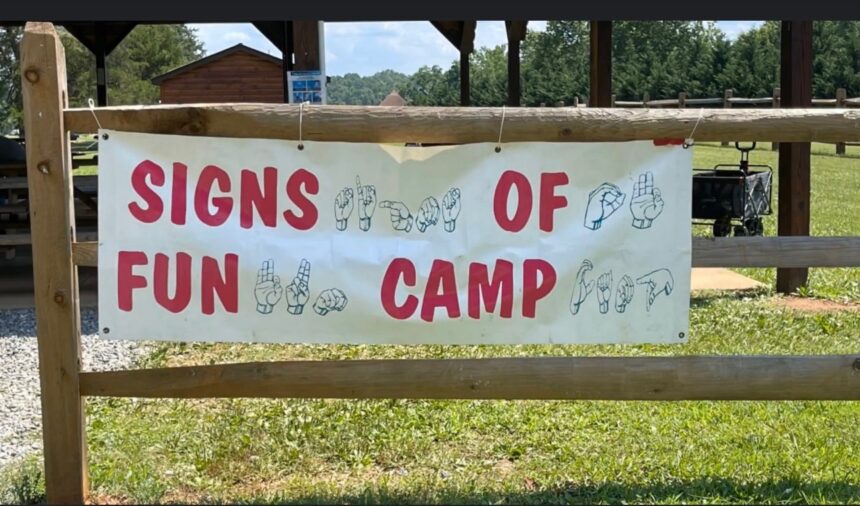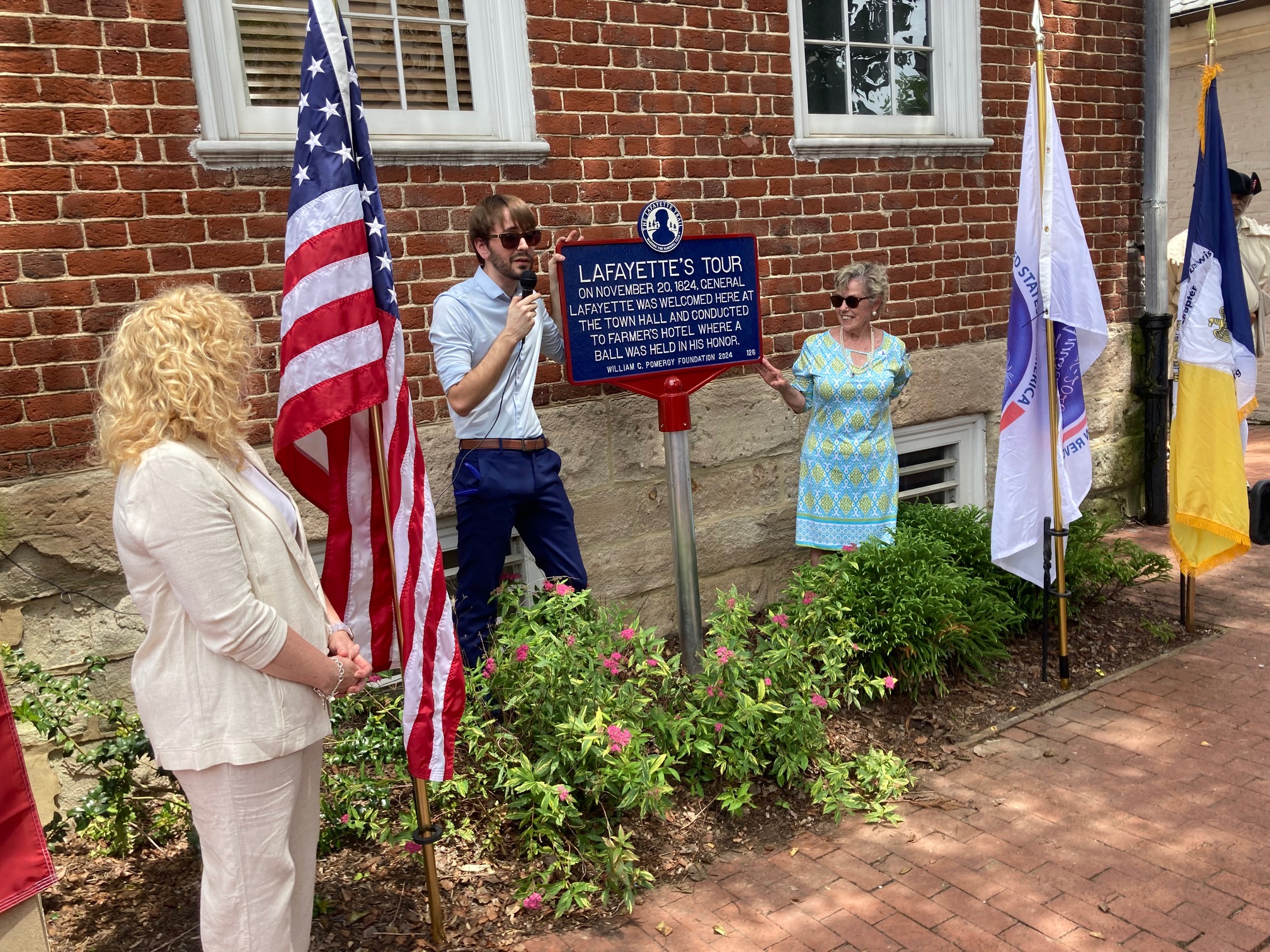
Mary Washington Healthcare is pulling in-kind support and charging Moss ‘additional rent.’ Clinic may need to raise $750,000 per year.
by Adele Uphaus
MANAGING EDITOR AND CORRESPONDENT
The Lloyd Moss Free Clinic’s ability to continue providing services to Fredericksburg’s low-income, uninsured and underinsured population is threatened by changes in its relationship with Mary Washington Healthcare (MWHC).
Though they are and have always been separate entities, the clinic and Mary Washington Healthcare have been associated through a community health services agreement, which was established in 2004.
Under that agreement, the Foundation agreed to conduct a capital campaign to raise $10 million “for the purpose of providing health care services for free or at a substantially reduced cost.” The Foundation agreed to use the funds raised through the capital campaign to “build an indigent care facility on the Mary Washington Hospital campus, and to provide ongoing financial support to the operator of that facility.”
The 2004 capital campaign was successful in raising $10 million, and the clinic, which had been operated out of a building on Hunter Street in downtown Fredericksburg, moved into to the Carl D. Silver Health Center building on the hospital campus in 2007. The building was constructed with $6 million from the capital campaign, leaving $4 million for on-going operations.
Per the agreement, the Foundation agreed to lease the facility to the clinic so long as it continued its mission of providing indigent care. According to the terms of the initial five-year lease agreement between MediCorp Properties, a subsidiary of Mary Washington Healthcare, and the clinic, which was signed in February of 2007, the rent was $1 per year. The lease renewed twice, for five years each time, and was in effect until 2022.
MWHC Moves to Take Control
The capital campaign operating funds began running low in the fall of 2019, and after COVID-19-related delays, the clinic and MWHC began conversations in late 2021 about continued funding.
In October 2021, MWHC’s senior staff gave a presentation to the Moss Clinic’s 17-member board of directors, in which they proposed that MWHC take over operation of the clinic, according to people with knowledge of the events.
This proposal came as a surprise to the Moss Clinic’s board members, who did not understand the rationale behind it. They hired Snowflake Consulting Partners, a firm that has worked with other free clinics, and spent a year seeking additional information from MWHC about the proposal.
In January 2023, the board unanimously voted to reject MWHC’s offer. The primary reason, board members said, was the fact that they did not feel confident in the financial information being provided. MWHC would be operating the clinic at a loss and board members did not understand the rationale behind the proposal.
They also feared that a takeover of the clinic would change the clinic’s mission. MWHC indicated that it planned to stop providing dental care, which Moss Clinic board members felt was a crucial part of its work to improve community health.
Board members also did not want the 14 other pharmacies served by the Moss Clinic’s pharmacy to lose access to the medications Moss provides, and they worried that a MWHC-run clinic would mean increased wait-times for appointments.
In addition, volunteer physicians told Moss board members that they would no longer donate their services if MWHC took over the clinic.
Board members said they did not make the decision to reject MWHC’s proposal lightly and that they understood that the clinic would take on an increased financial burden as a result.
In-kind Services
What the Moss board did not expect was the resulting loss of in-kind support. About a month after rejecting the proposal, MWHC told the clinic that it would no longer be providing IT or telephone services. Then, in the summer of 2023, the clinic was asked to transition off the MWHC accounting and payroll systems by the end of the year.
It will cost the clinic about $10,300 per month to cover IT, accounting, and payroll.
In an email to the Advance, Eric Fletcher, MWHC’s senior vice president and chief strategy officer, said the hospital system asked the Moss Clinic to transition to its own IT, payroll and accounting systems because “we identified significant cybersecurity risks with the clinic’s use of computers and various devices that were connected to the MWHC IT infrastructure.”
“Given the increasing incidence of cyber security breaches and their inherent risks, MWHC no longer provides IT services to independent organizations like Moss,” Fletcher wrote.
Then, in October 2023, clinic staff received a new, one-year lease for the rental of its building. Effective in January of this year, the annual base rent is still $1, but the clinic would now be responsible for “additional rent” to cover “operating expenses” at a cost of $10,650.47 per month.
In order to cut costs, the clinic plans to vacate the second floor of its current facility by the end of March.
Without the operating expenses from the 2004 capital campaign, and with these new expenses—which have not been part of its budget for the 30 years of its existence—the clinic now needs to raise an additional $750,000 in new funding per year.
MWHC has “a long history” supporting Moss
Fletcher said that the hospital system “has enjoyed a long history as the primary supporter of the Moss Free Clinic.”
“We continue that support by providing the Clinic with its physical space for $1 per year (it has a leased value of $500,000 per year),” Fletcher wrote. “Each year, (MWHC) also provide(s) more than $10.7 million in free emergent specialty and hospital-based care to all patients in our community who are uninsured or underinsured, including all patients who use the Moss Clinic for primary care.”
Fletcher said the Mary Washington and Stafford hospital foundations provide funding to other community health clinics, such as the Fredericksburg Christian Health Center, the Guadalupe Free Clinic, the Living Water Community Clinic, the Central Virginia Health Services Fredericksburg Health Center, and Micah Ecumenical Ministries Respite Facility, through an annual grant process.
The total amount distributed last year to community health clinics and “other health focused community organizations” was $1 million.
And, Fletcher said, MWHC is investing $10 million in developing two new graduate medical education clinics that will bring “more than 60 primary care physicians to our community, all of whom will provide treatment to the uninsured and underinsured.”
“So the safety net in our region has never been stronger,” Fletcher wrote.
Understanding the Scope of Services Moss Provides
The Moss Free Clinic currently provides comprehensive health care, including dental care, to more than 1,000 members of the community each year. Its patients are either uninsured or enrolled in Virginia Medicaid and live in households with incomes of less than 300% of the federal poverty guidelines.
The clinic also has a pharmacy that fills prescriptions not only for its own patients, but those at 14 other free clinics around the state that do not have in-house pharmacies.
Established patients can also receive dental care at the clinic, which partners with the dental assistant and dental hygienist training programs at Germanna Community College to offer practicum opportunities to students.
The clinic has a paid staff of 32 people and a pool of more than 300 volunteer physicians and nurses who donate their services every year.
In 2022, the clinic saw 1,147 patients for a total of 5,454 medical and specialty visits; 1,194 dental visits; and 919 mental health visits—and it filled 15,142 prescriptions.
In addition to the capital campaign funds, the clinic receives some funding from the state, some from the Fredericksburg-area localities it serves (the city and the surrounding counties of Stafford, Spotsylvania, Caroline and King George), some from direct donations, and some from grants.
For fiscal year 2024, which ends June 30, Fredericksburg City provided $12,000 to the Moss Free Clinic. Spotsylvania provided $33,150 and Stafford provided $28,543.
Longtime Moss clinic director Karen Dulaney said the clinic now needs the community’s support.
“We need the community to come together again like it did for the capital campaign 20 years ago to help us fund our future ability to provide the care our patients are counting on us to provide,” Dulaney said.





Great reporting. Let’s hope the community can step up.
Agree. Great reporting as ever from the Fredericksburg Advance. May the community, local governments and MWHC continue to support this worthy endeavor.
What is missing from this article is an explanation that the MWHC is incorporated as a non-profit, which means they do not pay federal taxes on most or all of their income, (readers with specialized knowledge of this arrangement should explain just how it works.) This status requires them to provide benefits to the community, so their help to Moss is not done out of the kindness of their hearts. More needs to be revealed of MWHC compliance with the tax laws which advantage them.
Now they are evicting Kid Station to use the area for a parking lot. Mary Washington shows little concern for its staff or community.
I totally understand the cyber security concerns from MWHC. I’d like to now more about the Moss Clinic’s efforts to meet MWHC’s requirements? This area is full of cyber security companies who could probably use the tax write off of providing that security along with some in kind donation for the overall IT support the Clinic needs.